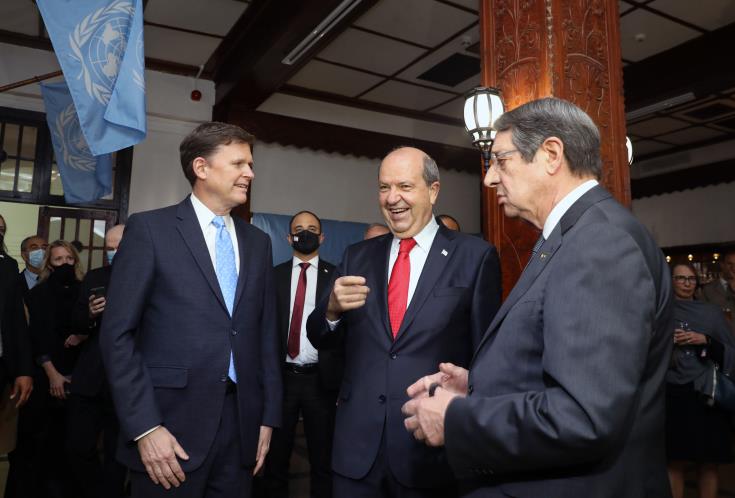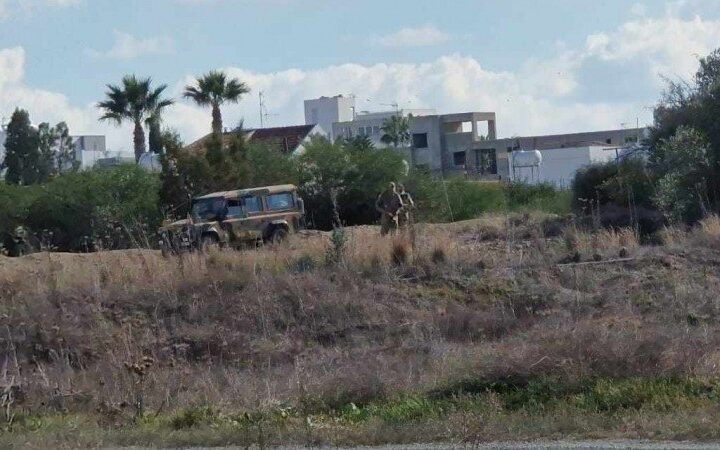Over the five years of this government, a toxic mix brewing has ensured that peace talks are buried under concrete as Nicosia adopted a more aggressive tone.
It will have us believe that everything has been done to try and revive the non-existent peace process pushed under the bus at Crans-Montana in 2017.
Turkey has exploited the impasse to create mischief in the East Med, harass Cyprus’ energy search and sabre-rattle over the Aegean.
Ankara is playing the long game in its bid to become a regional policeman to give it more influence among major powers.
Nicosia has chosen a confrontational path to rile Turkey and make alliances that give it a defence buffer against any perceived aggression or challenge to its sovereignty.
Nobody can blame Cyprus for wanting to protect itself from an occupying force but allowing de facto division of the island to deepen is not a strategy that benefits Cypriots.
President Nicos Anastasiades argues he can do no more than he has done to rekindle the embers of a dead peace initiative.
He blames Turkey for being unreasonable, stubborn, belligerent and only interested in usurping Cyprus’ sovereignty and controlling Greek Cypriots.
It’s convenient to say he sent letters to the UN, reassured international leaders that he wants talks to resume, and proposed a series of confidence-building measures.
Many observers will argue the Cyprus problem has never been in a worse rut; the government must take some responsibility.
The Cyprus problem will not solve itself, and a settlement will be reached around the negotiating table.
Brussels will not come charging in on its white horse to save the day by conjuring a solution, nor will it lock horns with Turkey over Cyprus.
Government policy is less about smoothing over the bumps with Turkey and the Turkish Cypriots but finding ways to persuade the EU to give Ankara a bloody nose.
Trying to compete with Turkey in its own game of brinkmanship is ill-advised, although our politicians are bankrupt of ideas.
Allowing inertia to flourish has widened division, generating greater mistrust, with politicians doing little to stem the negativity.
Cypriots are more cynical about the prospects of reunification, lacking any confidence that reconciliation can be achieved.
Hope has been the real victim of this deadlock; politicians declare they want to solve division, but there is no conviction in their voices or actions.
Anastasiades may be able to blow smoke in the eyes of the electorate, but the United Nations has drawn a vivid picture of how hope is dismantled.
Painful
Reading the UN secretary general’s reports on Cyprus is a painful exercise; if they became any bleaker, they would be issued with a health warning.
According to UN boss Antonio Guterres, “given the prevailing socio-economic and political climate, prospects for reaching common ground on the Cyprus peace process remain uncertain for the time being.”
To compound the matter, no agreement can be reached on appointing a UN envoy to explore ways to find the middle ground.
Cypriot leaders are criticised for perpetuating division by discouraging a spirit of compromise and cooperation.
With the situation seemingly beyond repair, the government has taken a different tact in bashing the UN for not being subjective enough about Turkey’s behaviour.
It has also challenged how the UN operates its mandate and accused it of causing problems.
So the very organisation tasked with solving the Cyprus problem is viewed with suspicion, which helps the government’s narrative of being derailed by devious actors.
Just when the government was seeking a UN payback opportunity knocked, the Turkish Cypriots leaked a story about the head of mission.
Daily Yeni Duzen claimed that during a meeting in New York, UNFICYP’s head of the mission said: “The northern part of Cyprus has now been integrated economically and politically with Turkey.
“The Greek Cypriot side is the one that needs to act to change the situation.
“However, all they do is complain, condemn and accuse.”
The UN refuted this version of events as “wrong and unfounded”.
But this didn’t appease the government; it wanted Colin Stewart himself to make a public denial, so they could look into his eyes when he said it.
All very unsavoury, especially when the President has a good dig.
“I don’t want to think that something similar was said.
“Mr Stewart has been challenged to restore reality.
“If something similar was indeed said, the least that could be said is that we are no longer talking about a representative of the UN, but a representative of those who violate international law.” Ouch.










